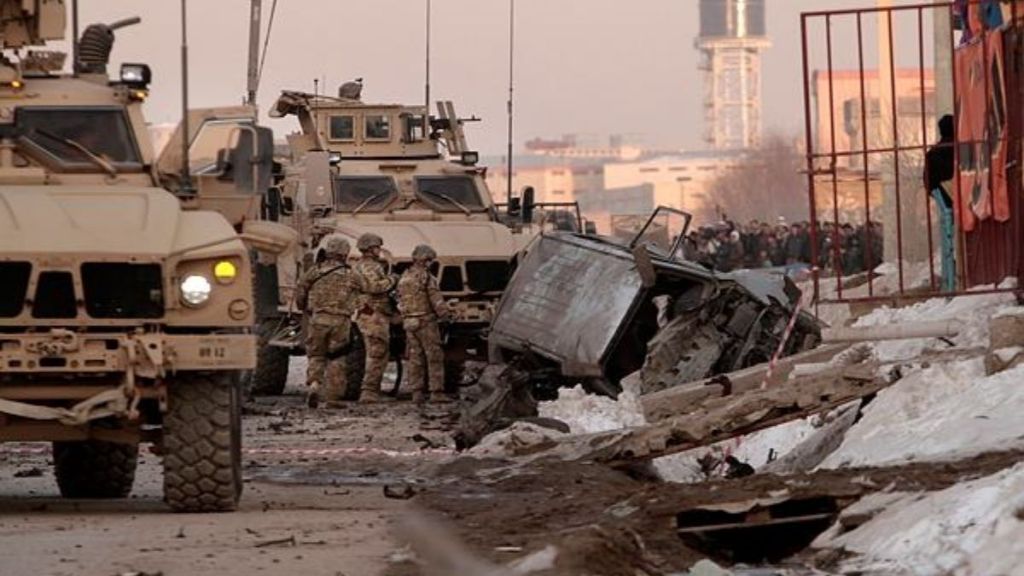The ongoing Israel-Hamas conflict, which completes one month today, has not only heightened tensions in the Middle East but has also drawn the attention of global powers. The United States has emerged as one of the most significant supporters of Israel, while Russia has swiftly condemned the attacks on Palestinian civilians in Gaza.
Russia’s involvement in the Israel-Hamas conflict operates on several levels. It stems from Moscow’s opposition to the West and its allies, including Israel, as well as its proximity to Iran. Iran has close ties with affiliated groups such as the Lebanese militant organization Hezbollah and Hamas, both of which have been actively engaging in hostilities against Israel. Additionally, Russia’s evolving foreign policy has brought it closer to Hamas.
At the onset of the violence between Israel and Hamas last month, Russia’s response was cautious and measured, reflecting its efforts to carefully assess its competing alliances. However, the nation has now shifted its foreign relations towards aligning with Iran-backed Hamas, a development that has surprised many international experts.
Presently, Russia appears to benefit from the ongoing conflict, as President Vladmir Putin has bolstered his standing as a global player and diverted the world’s attention away from the crisis in Ukraine.
Russia’s pro-Palestinian stance marks a notable departure from its previous rapport with Israel. President Benjamin Netanyahu used to refer to Russian President Putin as his “dear friend,” and Netanyahu had made more than ten visits to Russia since 2015, according to information in the public domain. However, the relationship between Russia and Israel has cooled significantly following the Ukraine war in 2022, where Western nations provided military support to Kyiv.
According to reports in different sections of the media, last month, President Putin hosted a delegation of high-ranking members from Hamas in Moscow. These meetings underscored Russia’s support for Hamas and its ambition to maintain a crucial role as a power broker in the Middle East. The Russian Foreign Ministry clarified that these meetings were part of efforts to secure the release of hostages from Gaza, asserting the importance of maintaining connections with both sides involved in the conflict.
The visits of Palestinian militant groups to Moscow have heightened Israeli concerns that Russia is realigning its foreign policy to draw closer to Hamas.
Furthermore, Russia’s ties with Iran have grown stronger in the wake of the Ukraine war. Iran now supplies drones and other military equipment to Moscow, and Russia has lent support to Iran-led groups in the Syrian Civil War. Nigel Gould-Davies, a senior fellow at the International Institute for Strategic Studies, noted, “Russia’s war in Ukraine has fostered closer military cooperation with Iran. Hamas officials have visited Moscow at least three times since Russia’s invasion of Ukraine,” as reported by AFP.
During the last Gaza conflict, Russia positioned itself as a potential peacemaker, with the backing of Iran. This alignment reflects Russia’s approach to international conflicts, viewing them as extensions of the broader rivalry between Western states and the rest of the world, with Russia on the opposing side. Putin has publicly attributed turmoil in the Middle East to Washington, intensifying Moscow’s alliance with Iran and Iran-supported groups such as Hezbollah and Hamas.
Tatiana Stanovaya, the head of R.Politik, a French-based political analysis firm, highlighted how this crisis contributes to anti-Western narratives by ascribing global instability and the resurgence of historical disputes to the West. Furthermore, Putin aspires to shape a new world order alongside China and Moscow’s allies in Iran and North Korea. Recently, he met with China’s Xi Jinping, reaffirming the strong ties between Moscow and Beijing.
This crisis following the Israel-Hamas conflict has effectively diverted international attention away from Ukraine, where the battle to repel Russia’s invasion has endured for more than 600 days. The ongoing conflict allows Russia to distract and dilute Western focus on Ukraine, potentially redirecting their resources towards the situation in Israel.
Senior US officials, such as US Secretary of State Antony Blinken and National Security Adviser Jake Sullivan, will likely spend a significant portion of their time addressing the Middle East crisis in the months to come.
In conclusion, the Israel-Hamas conflict has far-reaching implications, not just within the Middle East but on the global stage. Russia’s evolving stance in this crisis reflects its shifting alliances and the broader geopolitical landscape, with Putin seeking to capitalize on the situation to enhance Russia’s global position and divert international attention from the ongoing Ukraine crisis. The world continues to watch as these dynamics unfold, shaping the contours of international relations in a complex and turbulent era.


